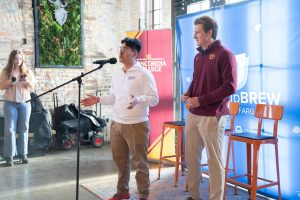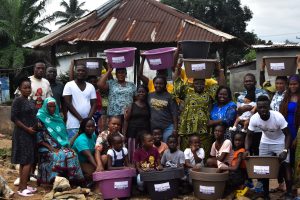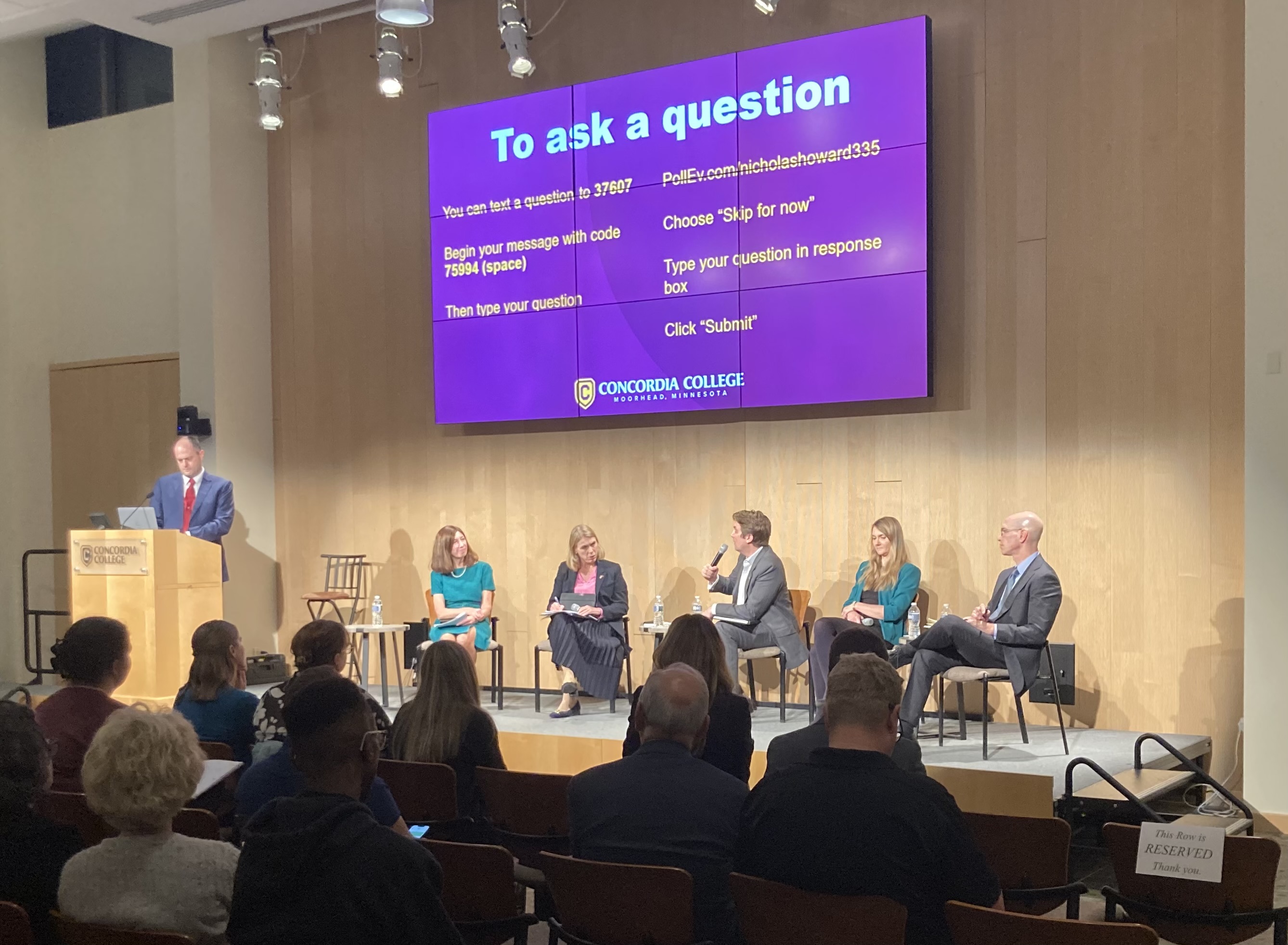Will Steger, polar explorer, returned to Concordia on Monday.
Joining him was J. Drake Hamilton, science policy director for Fresh Energy. Together, the two presented the forum “Clean Energy, Climate, and Health” addressing climate change and the role of Minnesota in these issues.
Steger, who has been called “Minnesota’s eyewitness to climate change,” shared his observations of and concerns about climate change. Steger has been an explorer of both poles for over 45 years.
In response to his concern, he founded the Will Steger Foundation, which “educates, inspires and empowers people to engage in solutions to climate change,” according to the foundation’s newsletter. The foundation focuses on three specific areas: K-12 education, emerging leaders (ages 17-27) and public policy.
One of the issues Steger addressed was the concern over the loss of ice at the poles. The ice cap at the poles is believed to help stabilize the climate because it reflects a lot of energy from sunlight.
Starting in the ‘90s, open water began to be observed in the summer in the Arctic. This is a concern because open water leads to a progressive cycle of ice loss as the dark, open water absorbs more energy. The greater absorption of energy leads to further ice loss, which leads to more open water.
In the summer of 2012, two-thirds of the ice cap melted. This has repercussions.
“If we lose the sea ice we lose the wildlife that lives on the sea ice,” Steger said.
Loss of ice also results in rising sea levels, which is a major concern for island nations and continental countries at low sea levels.
Hamilton is a science policy director. Her job involves recommending environmental action and policy based upon the best science available. Hamilton came from a family where all the kids were expected to help make the world a better place. This expectation led her to pursue a career in environmental science and policy because she saw it as an area in need of immediate action.
Hamilton finds inspiration for her work through forums like these.
“When we go out and talk to people across the Midwest, we find interest, ideas and creativity everywhere we go,” she said.
Hamilton’s role in the forum involved addressing efforts taken in Minnesota to address climate change.
“[Minnesota has a] multi-year track record of success,” Hamilton said.
When people see a track record of what people are capable of, they become inspired, she said.
Some steps Minnesota has taken include passing the Next Generation Energy Act, which acknowledges that the state needs to be good stewards for the youth. Ninety-two percent of legislatures voted for the bill. The legislation has science-based goals and plans to cut carbon dioxide use by 80 percent by the year 2050. Additionally, 25 percent of Minnesota’s energy must come from renewable sources by 2025.
Minnesota has also led the nation in the reduction of mercury output by coal burning plants, and shown that it can be done in a cost-effective manner.
The state is third in the nation for wind power use with 12.7 percent of energy coming from this source, compared to the national three percent.
“Minnesota has already started down the road to clean energy and has already seen the benefits,” Hamilton said.
She hoped people attending the forum would come out understanding this.
The evening was coordinated by the Office of Vocation and Church Leadership. Concordia is stop number four in a tour of eight similar forums.
“The Office of Vocation and Church Leadership was invited to help in a collaborative way to coordinate the arrival of Will Steger, and to make sure the evening is framed thoughtfully,” said Tom Schlotterback, director of vocation and church leadership.
He sees the event as part of Concordia’s vocation and mission.
“In general, Concordia College is a place…where the life of faith and the quest for truth occur in dynamic tension,” Schlotterback said. “Our life of faith, our theological grounding stirs us to care for creation profoundly so, authentically so. With that, our quest for truth about creation, including the climate and health of our planet, matters.”
Approximately 300 people from Concordia and the surrounding community attended the event.
Also speaking at the forum were President Craft and Bishop Lawrence Wohlrabe of the Northwestern Minnesota Synod, ELCA and member of the Board of Regents who provided faith reflections.
Craft cited the forum as a part of Concordia’s commitment to sustainability. He also addressed it in the context of Concordia as a college of the Evangelical Lutheran Church in America. The position of the synod, according to Craft, is that “care for the Earth is a profoundly spiritual manner.”
Within this context of stewardship, Craft considers wonder to be and integral piece.
“We are lucky to have with us this evening,” Craft said, “people who are full of wonder.”









Be First to Comment